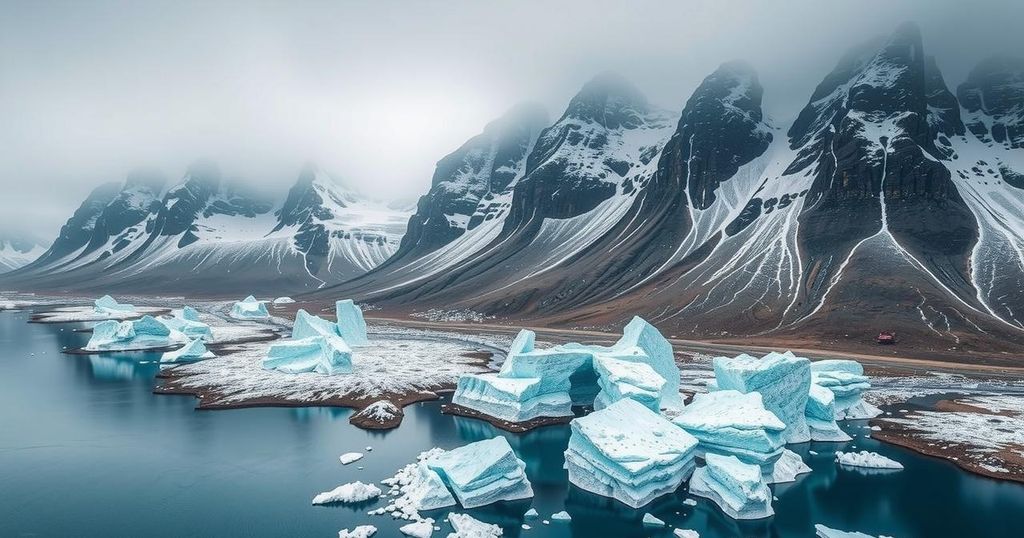Greenland’s Strategic Importance in a Warming World

Greenland, the largest island on earth, is experiencing severe impacts from climate change, warming at four times the global rate. Its vast resources of rare minerals, oil, and natural gas have attracted international interest, particularly from the U.S. and amidst growing geopolitical tensions. Additionally, Greenland’s ice melting poses threats of rising sea levels and alterations to global weather patterns, making it crucial in discussions of environmental and geopolitical strategy.
Greenland, positioned as the world’s largest island, plays a critical role in global climate dynamics and resource availability. It serves as a pivotal area where climate change, scarce resources, and geopolitical competition intersect. Experts like Professor Geoff Dabelko from Ohio University emphasize that Greenland’s significance is escalating due to its vast mineral deposits and strategic location for global trade routes, particularly as the Arctic opens due to warming temperatures.
The island is warming approximately four times faster than other global regions. It houses invaluable resources, including rare earth minerals, uranium, and significant untapped reserves of oil and natural gas. Currently, there is growing international interest in these resources, especially from the United States, amid geopolitical tensions involving China’s dominance in the rare earth market. However, the melting ice in Greenland poses an even more profound risk, as it threatens to raise sea levels dramatically—by up to 24 feet should all the ice melt.
Furthermore, the ice loss directly impacts global weather patterns and the Atlantic Meridional Overturning Circulation (AMOC), a vital ocean current that influences climates across continents. A potential slowdown or collapse of the AMOC is feared to usher in drastic weather changes, severely affecting agriculture and ecosystems worldwide.
Greenland’s geographical location also makes it a focus for geopolitical strategies among nations, particularly the United States, Russia, and European countries, amplifying its importance as shipping routes become more accessible due to climate change. The stunning landscapes and wildlife provide a stark contrast to the pressing environmental issues that come with a warming globe.
Through its unique confluence of natural resources and climate implications, Greenland emerges as not only an ecological bellwether but also a significant geopolitical asset in today’s rapidly evolving world.
Greenland’s role as the world’s largest island has gained attention due to its influence on global weather and climate patterns, coupled with its resource-rich environment. As climate change accelerates, the region is becoming a focal point for both resource acquisition and strategic military interests, particularly for nations like the United States and Russia. The natural beauty and ecological diversity of Greenland juxtapose with the urgent challenges posed by melting ice and shifting geopolitical landscapes. Notably, the island’s melting ice threatens to raise sea levels significantly, altering coastlines and weather systems worldwide.
In conclusion, Greenland stands at a critical intersection of climate change and geopolitics. Its rapidly melting ice underscores the urgency of addressing environmental issues while its resource wealth presents a potential avenue for geopolitical competition. The international community must navigate the complexities of exploiting these resources against the backdrop of climate urgency and the need for sustainable practices. As global temperatures rise, vigilance regarding Greenland’s geopolitical significance and environmental implications will be paramount.
Original Source: www.mprnews.org






